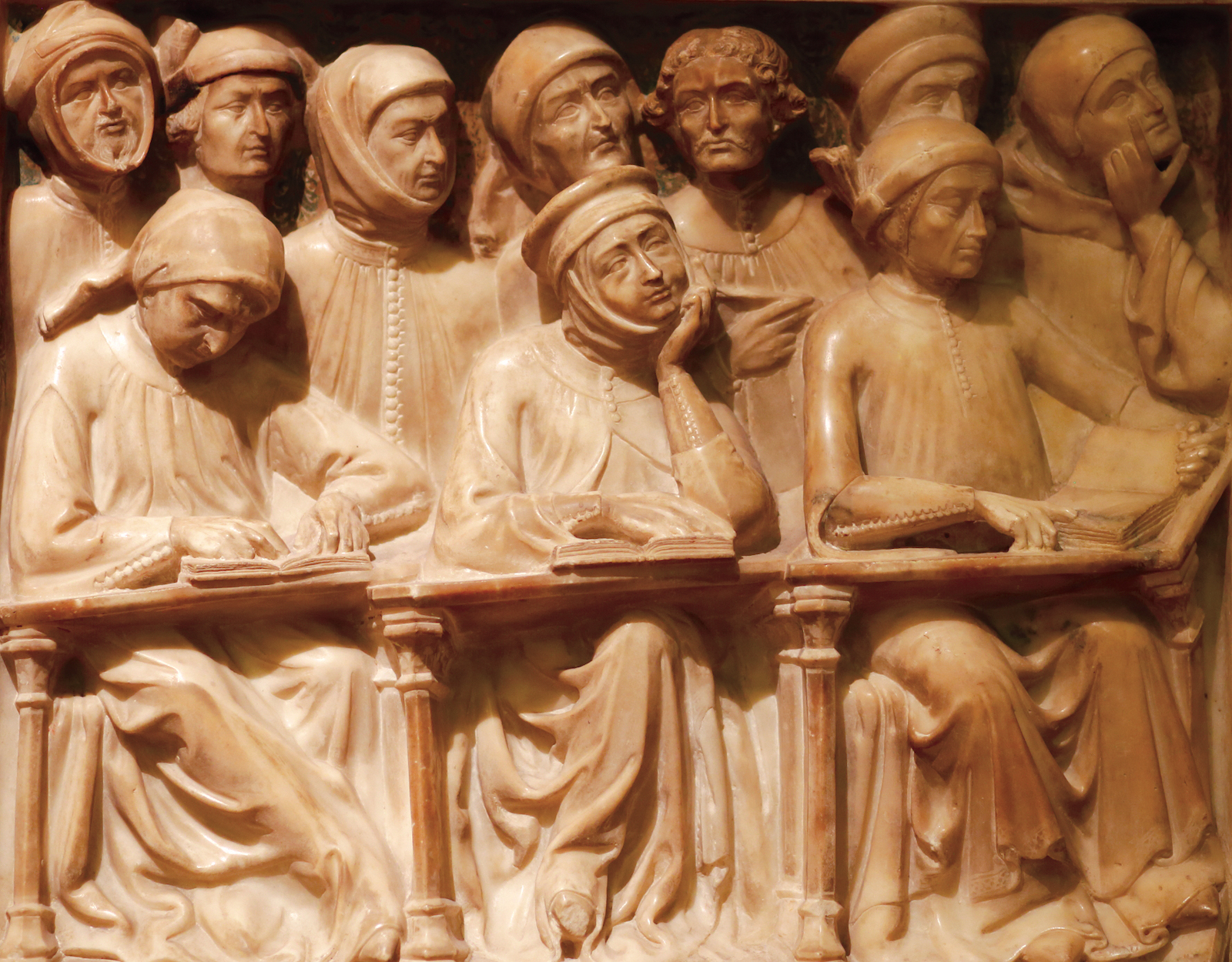The Medieval University Experience - 5 minutes read

Starting university has always been a difficult time for children and parents – and the experience was no different for medieval scholars and their families. Although, like today, some scholars remained close to their families, many young men travelled far for their studies and had to adjust to a long-distance relationship with their relatives. Universities provided new families: the university was personified as the alma mater (nourishing mother), responsible for her children; masters became paternal figures and role models, and peers resembled brothers to compete and play with. What did this mean for the relationships between the scholars and their own families?
Few letters between students and their families survive, but grammar exercises can give us an insight into the types of support and relationships that were expected and normal between relatives. In the 14th-century Treatise by Thomas Sampson, who seems to have taught at Oxford, is a letter template from a son to his mother asking for 20 shillings for ‘certain necessities’, to which the mother obliges. Although we are unsure whether these letter examples are based on real exchanges, such models were intended to be used and reflect real relationships and scenarios. Between course costs and living expenses, students needed to find sources of financing, and parents were the most reliable fount. However, students also contacted other family members if they could not ask or had been denied aid by their parents. In another model, a sister agreed to support her brother and kept it a secret from her husband otherwise she would be ‘dead’ and ‘destroyed’.
This was evidently a familiar enough situation that some parents may have needed to remind their children that they were not, in fact, a bank. In a model response from a mother to her son at university, she writes:
‘As for me, in writing this know that I am in good health … and I am sending to you by the bearer of this letter 20 shillings as you asked me in yours, charging you to resist all follies and keep to good habits.’
It is certainly true that she may be informing her son of her wellbeing, as would be expected in such letters; equally, it might be a hint that she is aware her son is using her for financial gain and wants to remind him of his filial duty. Other parents were less kind. In a German letter-writing treatise from the 14th century, a father shames his son for asking for money when he should be providing for his parents instead:
‘An adult and discreet son should be feeling ashamed when he believes and tries to extort money from his poor father, to whom he should rather be providing in necessities.’
As well as financial aid, parents provided essential guidance and discipline. A father can be found scolding his son after hearing rumours that he has neglected his studies and is wasting his money on sex workers. He laments:
‘My paternal heart is much wearied … your filial duty, that we believed was the light of our eyes and a staff for our old age, has abandoned responsibility and discipline for learning, is abandoned for the sake of using prostitutes.’
Universities often constrained scholars’ contact with women. Relatives were generally permitted to visit universities, even women, but this was not always possible. Some colleges, such as St Mary’s, Oxford and the Spanish College, Bologna included guidelines on female relatives visiting; others, including Oriel, Oxford, prohibited all outside visitors to avoid disturbing the community. In the Spanish College female relatives could visit during the day but were not permitted to stay the night. The statutes described women as ‘the head of sin, the devil’s weapon, the expulsion from Paradise, and the corruption of the ancient law, and therefore all commerce with her should be shunned carefully’. This ruling suggests a concern that women might pose as family members to engage in inappropriate relationships with scholars.
Visiting was made all the more difficult when scholars studied abroad. Students travelled from Poland, England and Cyprus to study at the University of Padua, making it hard to stay in touch with their families: even during the holidays, they may have been unable to travel home because of the cost and dangers.
The physical and emotional distance could take a toll. In Lodovico Ariosto’s play I suppositi (1509), Filogono shares his conflicting feelings about his son attending university: he knew his son needed to leave home and study, but ‘would be pleased if [he] did not pursue his studies further, but instead came home’. Filogono may be fictional, but the sentiment would have been familiar to audience members, who recognised what we might term empty nest syndrome. Letters allowed them to keep in touch, but they could take months to arrive and did not replace in-person interactions.
Ultimately, many scholars still needed their families, relying on them for financial support and guidance. It was an emotional and challenging time for all members of the family as they adjusted to these changes, and it continues to be so today. For those struggling to navigate the complexities of long-distance communication, remember the words of one medieval mother to her son:
‘Continue your studies well for your benefit and our love.’
Elena Rossi is a PhD student at Magdalen College, Oxford researching medieval women in university networks.
Source: History Today Feed